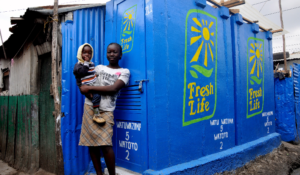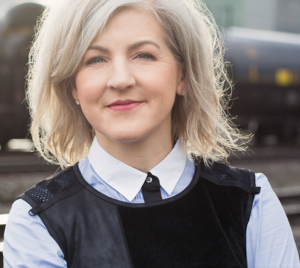
New DataKind CEO Sees More Than Dollar Signs in Data Science

(archy13/Shutterstock)
The impact of data science in the private sector often is measured in dollars and cents. If the profits go up and the costs go down, then it’s considered a win. But for Lauren Woodman, the new CEO of DataKind, which performs data science work for non-profit organizations, a successful project is measured in other ways.
DataKind was founded 10 years ago to help non-profit organizations and social change groups make the most out of their data. While non-profit organizations often have access to as much data as their private-sector brethren, they typically do not have the sophisticated data science expertise required to successfully mine it for insights.
That puts them at a decided disadvantage, says Woodman, who joined Datakind as its CEO in September.
“Very few nonprofits in this world can afford to have sophisticated data science capabilities across their organizations,” Woodman tells Datanami. “We work with nonprofits in a variety of different ways, sometimes in short term engagement sometimes in longer term projects, in order to really advanced the use of data science in the broader sector.”
Over the past 10 years, the New York City-based organization has worked on roughly 300 data science and AI projects. That includes such varied projects as using time-series data to improve access to sanitation in Kenya, using public data to identify child poverty in London, and using nighttime illumination data as a proxy for poverty in Bangladesh. During that time, its data scientists and project managers have collaborated with 20,000 volunteers in its pursuit of data-driven social justice. The group is currently looking for data scientists who would like to voluneer.

DataKind brought data science skills to bear with client Sanergy, which resulted in better sanitation in Kenya. (Image courtesy DataKind)
Data scientists in the private-sector company will celebrate when they help their company get higher profits. While DataKind may use the same types of data science techniques, the payoff is a little bit different, Woodman says.
“The equivalent to that in the social sector is, are we helping people stay in their houses? Are we helping people get access to the services that they need in order to thrive? Are we helping organizations that work on the frontline of health problems [to] solve those problems more effectively?” Woodman says.
Big Data for Good
Woodman has been working at the intersection of tech and social good for the past 25 years. For the past six years, she was the CEO of NetHope, which aims to improve IT connectivity among humanitarian organizations. Before that, the Seattle, Washington resident spent 10 years at Microsoft, where she was general manager of education programs. When the opportunity arose to be the CEO of DataKind, she “jumped at it.”
“The thing that’s interesting to me about DataKind is it is a very unique organization in it’s specificity in terms of the tools that it’s dealing with,” she says. “We’re really focused on data science and AI . That is it. That is an interesting space, regardless of how you come out it, certainly from a social impact perspective.”
DataKind’s larger mission would also seem to be a good fit for Woodman’s skills sets, specifically how it pulls together dedicated staff, volunteers, nonprofits, the philanthropic community, and corporate partners. Bringing together such a diverse group of stakeholders isn’t easy, and it takes a particular type of person who can do it well. In Woodman, DataKind appears to have somebody who thrives at that kind of cross-sector work.
“Cross sector work is really hard to do,” Woodman says. “But I also firmly believe that, especially for a lot of these global challenges, we’re going to have to have many different inputs, so DataKind is a really unique opportunity to work across sectors with a very specific set of sophisticated tools, to solve some tough problems that we all care about.”
AI for Non-Profits
One of the challenges that DataKind faces is figuring out how to bring the AI and data science skills to bear on a given problem. It’s not always an easy task in the private sector, and it’s arguably even tougher in the non-profit realm, where funding can be harder to come by and the “fail fast” mindset may not be as tolerated. That’s one reason why it’s important to have a clear channel of communication and to take the time to set expectations with its customers, Woodman says.
“One of the things that we do a lot with the partners that we work with is really sit down and understand what their needs are, and make sure that we can scope the projects that we’re working on appropriately,” she says. “You want to make sure that whatever questions you’re asking are the right questions, and that you’re then deploying the right types of tools against those questions to make sure that that the organizations are getting the answers that they need.”
In some cases, the same types of data and AI skills that have been used successfully in the private sector can be brought to bear in the non-profit world. For example, the group did route optimization work with a Haitian non-profit to ensure sanitation trucks have the maximum impact on the population they serve. It also did route optimization work for COVID-19 vaccine distribution in Africa with the non-profit Riders for Health.
Thanks to stringent reporting requirements put in place to ensure non-profits are not wasting funds, many non-profits have plenty of data. (However, those requirements can cut both ways, and sometimes hamstring the use of funds for IT and data work, especially if that works gets classified in the “administrative” category, but that’s another story.)
The core challenge facing DataKind and the non-profit organizations that it serves is that its clients often lack the data skills necessary to use the data in different ways, or to even come up with the big data idea. This is especially true of small and midsize non-profits, Woodman says.
While some DataKind customers are just getting started and are starting small, that pattern does not hold across all of the organizations that it engages. In fact, some of the bigger groups are pushing the bounds on AI in ways that are similar to larger for-profit companies.
“There is certainly a lot of low hanging fruit and certainly we want to help organizations advance in that way,” Woodman says. “But I think as we will see, the evolution of the social sector is inevitable, just like it has been in the private sector, and you will see lots of organizations starting to embrace data science and move up into much more sophisticated applications, more complex applications.”
Ethical Use of AI
Non-profit organizations that adopt AI are struggling with some of the same questions about bias and fairness that for-profit companies are facing, too. While Woodman has not heard of any DataKind clients having qualms with AI, she is aware from her work at NetHope and others that the ethics question is a pressing one for non-profits.
“The reality is social service organizations are inherently conservative and risk-averse,” she says. “They have very different incentives. [We’re] talking about people’s lives. We’re not talking about whether a product launch goes well or not. We’re talking about things that make the difference sometimes for communities that are very fragile, or people who are living in very fragile context.”
The boards of non-profit organizations are attuned to some of the questions about how data science is used, and questions about the ethics of AI, she says. In the non-profit sector, it can also be compounded by questions about the data, which is another risk that has to be factored in.
“I think there’s a lot of hesitation,” she says. “I think it comes from a good place of wanting to make sure that we’re doing the right thing. And so I think the more that we see how data science can be used effectively in the sector, is a good counter narrative to the narrative that everything is just too scary for us to tackle.”
Engagements with DataKind take several forms. The organization (which is itself a non-profit) hosts DataDive events, which are short (typically a weekend) engagements where data scientists can gather virtually and brainstorm potential ways that data can be brought to bear on a non-profit’s business.
“We just did one in Florida, for example, to help three different organizations answer some questions, one of which was an organization that works with at-risk teenage girls,” Woodman says. “[We] looked at a bunch of demographic data, publicly available data, to help them understand where they might be missing underserved populations.”
It also hosts longer projects, called DataCorp events, which look more like traditional consulting projects. These projects typically last six to 12 months, or longer, and involve dedicated staff members from DataKind (often one or more data scientists) who partner with the non-profit to answer more difficult questions.
When the projects are over, the goal is to leave non-profits with a sustainable data science application that will bring benefits to their communities and constituents, whatever their needs might be.
For DataKind, that kind of payoff is priceless.
Related Items:
Getting a Foot in the Door for Smart City Projects
Crazy Idea No. 46: Making Big Data Beneficial for All
AI for Good Projects Need a Helping Hand
































